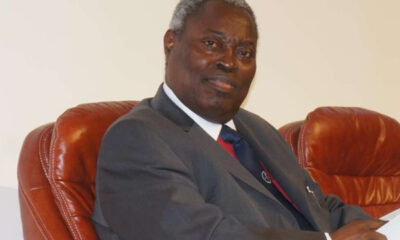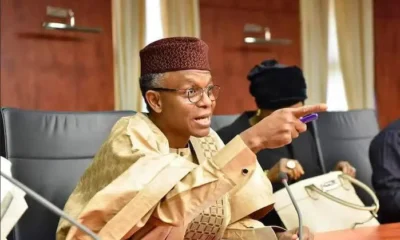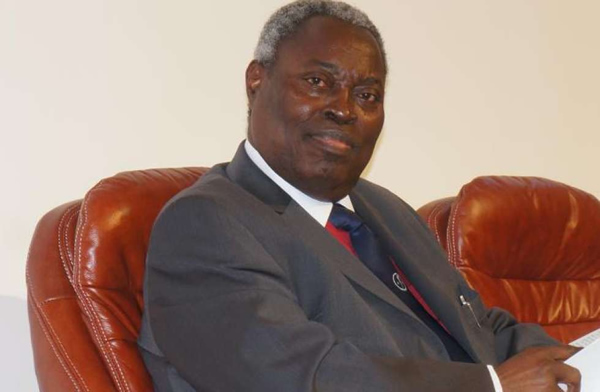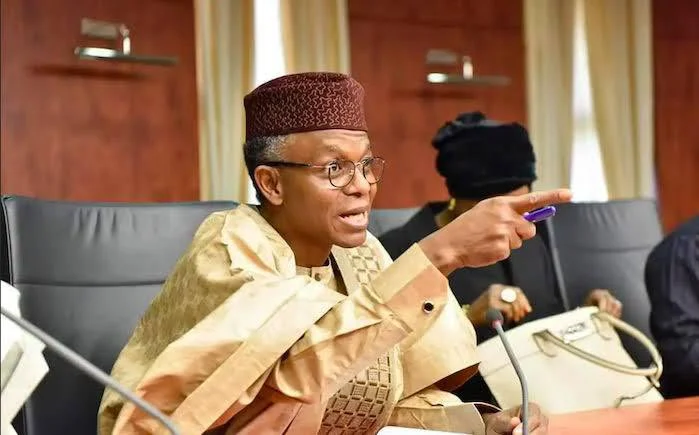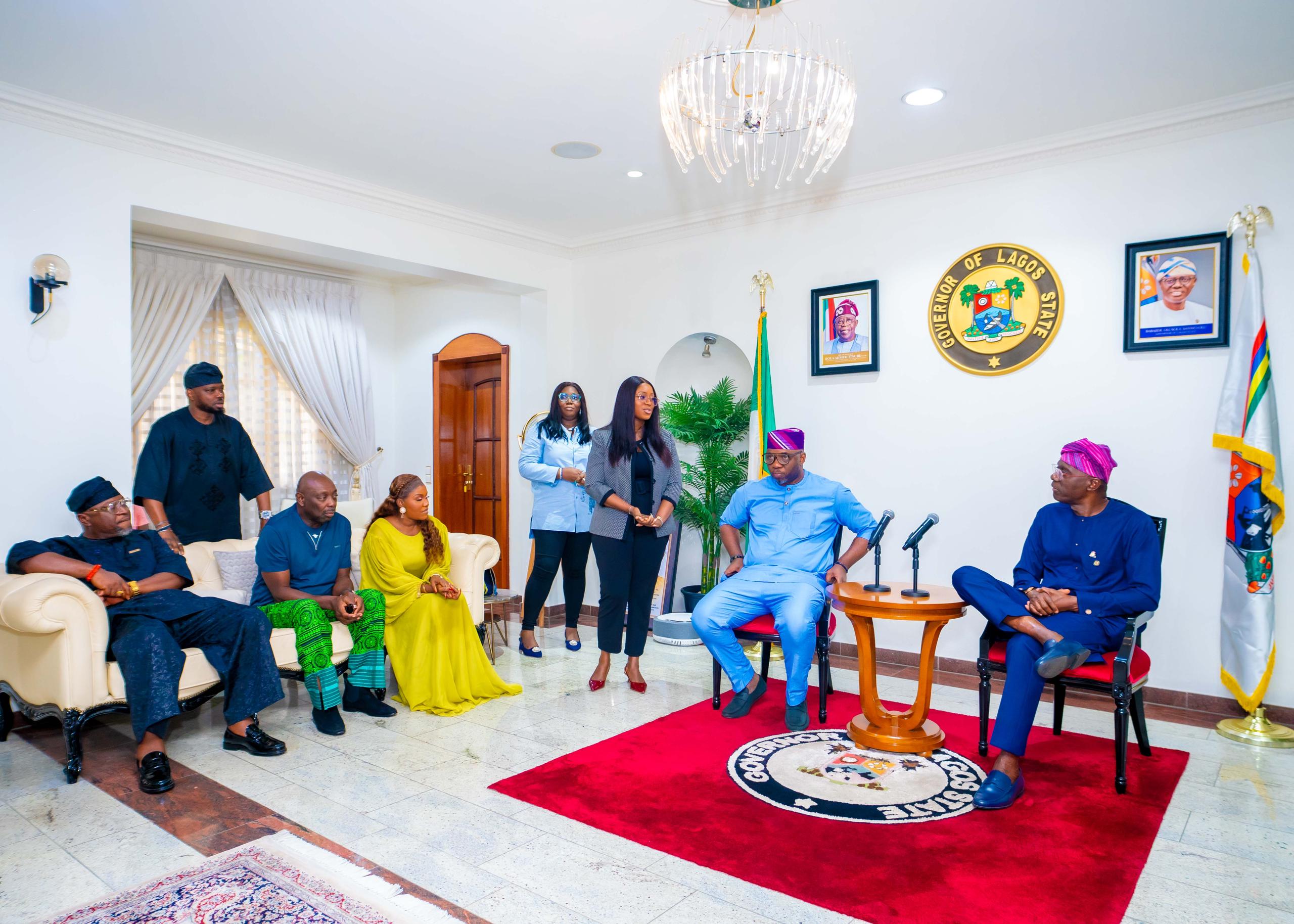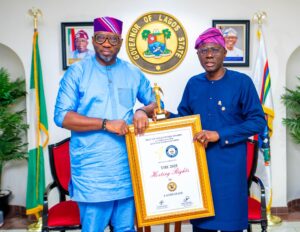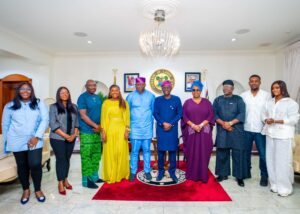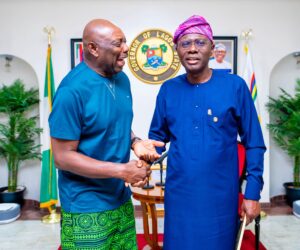- Ireti Doyle is a Nollywood actress, producer, and writer. The 56-year-old Ondo-born entertainer recently made her debut as an executive producer in ‘The Hidden’, an African Magic original series. In this interview with BEBORAH BODUNDE of The Cable Lifestyle, Doyle speaks on the inspiration behind the series and her transition into a producer after nearly three decades of being in front of the camera. The actress also speaks about the evolution of the Nigerian film industry, the sexualisation of women in showbiz, and some of the biggest misconceptions people have about performers.
Tell us about ‘The Hidden’ and what inspired the storyline/plot of the series.
To be honest, it was a synopsis I had written many years ago. It is one of many that I have in my drafts. The difference between the first synopsis and this one is that the first story was centered around teenagers and young adults. Same premise, but I had grown now and I was no longer in my 20s or 30s. This is no longer a teenager and young people’s story, this is grown folk. So that is how it evolved to being grown women living in a house and having their problems dealt with.
The inspiration was creating a central character that represented hope, represented a safe space, and second chances. It wasn’t too much of a challenge and in this instance, it was even easier because I created the character. The original story is mine but look out for everybody. Every character has a story, there is no filler character. Everybody has a story and it is all tied together. Our casting is brilliant. Each person sits comfortably and convincingly in the character that they are portraying.
How were you able to get into such an emotionally charged role?
Ireti Doyle: It has been nearly three decades in the industry and there have been several lead roles, some of them even bigger than this. Was it tedious getting into a high emotional state? After 28 years of acting, no. Getting into a high emotional state is just the name of the game that I play. I am an actor so that is what is expected of me. I did not particularly find it tedious playing Flo Ade. She is not the most complex of characters that I have played, if anything I wanted the audience to see through the eyes of the other characters. In season one, Flo Ade is essentially sorting out other people’s problems, she is a caretaker. It is abundantly clear that she has demons of her own but we did not get to delve into her problems too deeply in season one.
While embodying this character, were there any lessons learned?
The lessons had been learnt. The Hidden is a composite of different people’s experiences. Some of them were mine, some of them belonged to other people and anybody who knows me well will recognise my story somewhere in the mix. I have lived quite a bit of life so the lessons had already been learnt. It was just more like sharing experiences and alternate ways of dealing with situations.
You mentioned that you have gone through life and this is part of what inspired the storyline. Would you say there are some similarities between you and the character you played?
Yes there are several similarities. My life is an open book to those that are called me. It is not everybody that you are called to or that is called to you. It is not everybody that will come into contact with you and you will have a word in season for them or they will have a word in season for you. But I have had so many encounters with women and young girls who just feel drawn to me. We will get talking and we will get into deep waters and somehow we will leave each other feeling good about the situation. If not sorted, then at least enough to take the next step.
So I believe strongly that my life is shaped in a manner so that people can learn. Other people can draw lessons. Other people will look and say okay, if she can do it, I can too. And I believe that you do not need a big stage or a big pulpit to get that done. Just living your life and walking in your purpose will accomplish that. There are people that you don’t even know are watching and you will inspire them and give them hope. So I like to use my life lessons to teach, to inspire and to give hope to those who are called unto me.
What inspired your transition from being in front of the camera to being behind?
I wanted more. Being an actor gives you huge opportunities, I won’t deny that being an actor has opened tremendous doors and taken me to rooms that I never thought I would have access to. But the real power is behind the scenes, when you produce and when you write. You have more control, you are in charge, you can influence the story and the process. For a long time now, I have been asking myself what is next? And I always tell actors, anytime I get an opportunity to speak to them that you will not always be the flavor of the month, your phone will not always ring. So if you are smart, you are going to look for ways to evolve yourself and move into different things. Fortunately for me, I can write, I can produce, and I have the experience.
So it was always only a matter of time and opportunity. What this has essentially done is that it heralds the next phase of my career. I am looking to do this again and again and again. And it affords me the opportunity to continue to do what I love to do but now more and more on my own terms.
This is my debut as an executive producer and that is what is new. So how is that journey? Way more than what I was expecting. When I talk with my friends and they ask me how it is going, I like to joke and say all I wanted to do was shoot. But when you transition from being in front of the camera to behind, that is when you realise that there is a whole lot that goes into film production. Full responsibility is on your shoulders, you have to make hard decisions, you have to manage money, you have to manage people, and still get the job done within budget and on time. So it was a huge learning curve but I managed to get it done without dropping too many balls.
How challenging is your transition to being an executive producer?
That stretched me. As an actor, all you see is what is on the ground the day that you arrive on set. All you see is your script. There will be cameras, there will be extras, and there will be wardrobe and makeup. You just do your bit and you leave. It is when you go behind the camera that you now realise that the journey from script to screen is wide. I went for the top job as an executive producer, which means I had to have oversight of every single department. Also, compound that with the fact that the story is mine and so everything that was required to birth the story was in my head. So you have all these people, upwards of sixty highly talented and professional individuals all looking to you for answers and direction. It could be a bit daunting but I was prepared for this, the timing was perfect and I was ready.
My production team is some of the most delightful and professional people I have had the pleasure of working with. They understood the brief and delivered without having to be chased and without having to be overly supervised. Once it was clear what it was we were doing, everybody ran with it. Not only did they run with it, they kind of took the project personally. Everybody applied their special touch, they gave their A-game. I really salute my producer. She was awesome and literally made this first attempt really easy for me and enjoyable.
What are some takeaways you would like the viewers of The Hidden to enjoy from the show? And should we expect more productions?
I really do not like to prescribe what people should take away from a piece of art because art is subjective. My intention when I was creating the show was some sort of challenge. If I walk into a random room and there are twenty people there, chances are that ten of them will call me Madam Sheila – my TV character name on Tinsel. That is a measure of the success of the show, the characters, and the degree to which the audience has connected. So there was just this quiet challenge to create a character that will take on such a huge persona and connect so tightly with the audience. That was my artistic ego and that is left to be seen.
I wanted to create a safe space, I wanted to create a strong female character whose strength was of a different kind. It is my opinion that the world has become such a hard place, so I wanted to create a character that portrays the strength of a different kind. Someone whose life has bashed a bit but as opposed to becoming bitter, becomes better. She takes her lemons and turns them into lemonade and uses that to nourish and nurture other people. I wanted to create a story that left the audience engaged and disturbed during the storytelling but at the end of the day, leaves one with a sense of hope.
It does not matter how bad it is or where you are coming from, life will always give you a second chance and you just need to reach for it. I think that’s the central theme of the entire series. Second chances.
Overall, I would like it to be entertaining. TV is supposed to entertain you. I would like for the audience to be invested in the characters. One of the things that we succeeded in doing was creating a vehicle for relatively unknown actors to shine, and this crop of actors shined so brilliantly. I am hoping they connect with the show and the stories and with the characters that we have created. Yes, please expect more productions.
How do you think the Nigerian film industry has evolved since you first started acting?
We have evolved in leaps and bounds. I am so proud of our journey thus far. I am so proud of how far we have come, what has been accomplished, and the kind of collaborations that we are now involved in. I am so proud of all front liners, especially the women doing great things. It is a wonderful time to be involved.
Is there room for improvement? Absolutely. There will always be but there is no denying that we have come a long way and there is so much to be proud of. If we weren’t on the right track, we wouldn’t have the big streamers here. Everybody is here, this is a huge market. Our production values have grown exponentially and I am looking forward to the time when the artistic end of things like storytelling and the scripts will get even better. But we have evolved tremendously and the only people who cannot see it or hear it are the blind and deaf.
What has been your most challenging role as an actress and how have you been able to stay motivated through the years?
My most challenging role would have to be in the movie ‘1929’. That was based on the real events of the Aba women’s war. I played the women’s leader and I had to speak Efik but that wasn’t my greatest challenge. She was a warrior that led women to war. She was fiery, she was gusty, and physically it was a rugged shoot. The greatest challenge was that it was based on real historical events. You can’t mess that up. It is not a work of fiction so you can’t do it however you feel like. There are facts. There are historical facts that cannot be breached and I think that was my most challenging role. And if you look at it, the transformation was complete. Even when I saw the pictures I was shocked. There was absolutely no makeup so whatever transformations you saw on the outside were brought about by the emotions that were going on on the inside. It was hard work.
My passion for what I do has kept me motivated. You have to love what you do. I don’t care what it is that you do. If you don’t love it, I don’t see you sustaining it for almost three decades. So I don’t take it for granted and I feel truly blessed to have a job that I thoroughly enjoy and that I would do for free. For example, if I was in corporate Nigeria, I would look for opportunities to act even if I was not going to get paid and that would probably be my hobby. So first and foremost, passion. Also, the understanding and conviction that I am doing exactly what I was designed to do.
It does not matter how hard it is, it is not always rosy, you are not always in the executive producer (EP) role, and you are not always going to get the caravan. Sometimes you are going to get a bench under a tree, sometimes people will annoy you, and you will feel disrespected. But it does not matter how annoying any particular set gets, the thought of quitting has never crossed my mind. It has never crossed my mind that I am leaving Nollywood or I am going to stop acting. No, if anything I am wading into the waters even deeper.
What do you think sets Nollywood apart from other film industries all over the world?
I think because we are not afraid to navigate the industry and when I say the industry, I am talking about the global industry as one combined. When we are navigating, we navigate as Nigerians. We are not ashamed of our ‘Nigerianess’. It shows in our stories, it shows in the way we tell the stories, the way we present the stories, and the way we build these stories to the world. We carry that Naija spirit, the best of the Naija spirit, with pride. I think that is what gives us a unique flavor. Is all of that good all the time? Maybe not. But there is no denying that it sets us apart. When the Nigerians arrive, you will know. So I think the fact that we carry that identity with us around with pride is one of the things that sets us apart.
What is your take on the sexualisation and objectification of women and children in showbiz?
Sexualisation of children is a no. It is something that should not be allowed and there should be strict laws guiding that. I was online and there was a story that caught my eye about the arrest of an individual who had sexualised a minor. So I am glad to see that the authorities are doing what they are doing.
Now when you talk about sexualising women, that can be offensive because I am a woman. I ask myself these questions but then again sex sells and that is not because I condone it. Sex sells. It does and there is a market for it. There is a demand for it and for as long as there is a demand and a market for it, somebody is going to supply it.
How do we deal with that? First of all, deal with the people who are demanding it because if there is no demand there will be no supply. And it is not just show business, the world is wired in a particular way. I ask myself these questions all the time, you’re selling a car but why does there have to be a half-naked woman, half-clad woman lounging on the car? Why can’t you just sell the car on the basis of its merits? I don’t know why but that is what I think. There is a demand for sex and it sells. Let us not be hypocritical. Let us call it what it is. There is a huge demand for it and for as long as there is a demand, people will supply.
What are some misconceptions people have about the acting profession?
I think one misconception is that actors and actresses are morally loose people. That is a big misconception and it is wrong. It is like saying all nurses cheat on their partners, it is wrong. It is a generalisation that has no basis in true facts. The second one which is kind of ironic, considering the fact that I am no longer married, is that performers cannot keep a home. That is also not true. Examples abound of performers who have been happily married for decades. Life happens. The same way it will happen to a banker or to a nurse or a doctor or a lawyer is the same way it would happen to a performer or someone in showbiz.
The difference is that we do not have the luxury of anonymity. Our lives are lived on the public stage so everything that we do becomes for public consumption. I think those are the two big misconceptions. There is a third one that irritates me and that is that actors are stupid. You can’t have an opinion on politics or governance or something. Then they tell you this is not acting. How condescending is that?
Actors are one of the most intelligent people you can ever find on the face of the earth. Why? They are widely read and knowledgeable people and that is why they can portray different characters convincingly. They have more than a working knowledge of most subjects.
What would you say has brought you this far in your career?
I am always prepared. I never take it for granted because I have been doing this for x number of years and it has become second nature. I never say that I’ve seen this character before and say I don’t need to apply too much effort. No. I try not to take my talent for granted and I try to be prepared. Preparation is key. Attitude is also important and I don’t always get that right, I’m human. Sometimes I make mistakes, sometimes I offend people. But in this business and indeed in life in general, talent will get you into the room but your attitude and work ethic will determine how far you go.
And quite frankly, it costs way too much money to produce any creative piece for the producers to want to take on your bad attitude. So I have tried to the best of my ability and without selling myself short, without bending myself out of shape, to always exude the right attitude and maintain a very high work ethic. Again, taking each day as it comes. Taking the best of it, throwing away the worst of it and just learning to pivot and roll with the punches. Just being versatile and adaptable to change, disappointments, and rejection.
What are you most proud of about your career?
Sometimes it gets tedious and it is not every time that you want to engage with the public. One thing that many people might not be aware of is that the average actor is shy and deep down inside they are introverts. Most of us put up this front. But I think the thing that makes me smile the most is my ability to connect with people. I am just going about my daily job and putting the art out there and then when I get feedback, people say this particular character or this particular struggle or this particular role touched them in a particular way or it gave them insight. It made them smile, brighten their day, and so on.
This makes me feel like I’m fulfilling my purpose because I think that is what I’m called to do; to communicate different messages at different times as they are presented to me. So yeah, connecting with people will be the one thing that puts a smile on my face beyond accomplishing each task placed before me better than I did yesterday.
Credit: The Cable

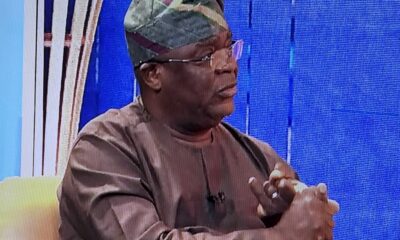
 BIG STORY5 days ago
BIG STORY5 days ago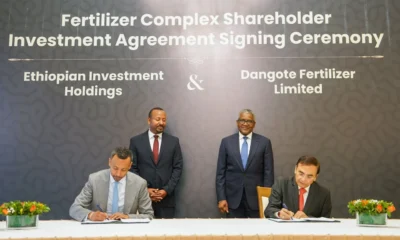
 BIG STORY4 days ago
BIG STORY4 days ago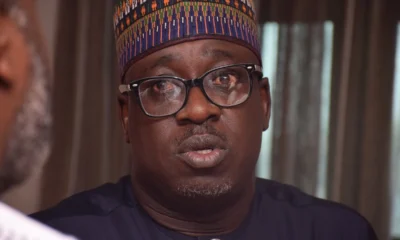
 BIG STORY4 days ago
BIG STORY4 days ago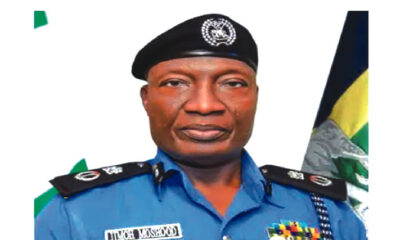
 BIG STORY3 days ago
BIG STORY3 days ago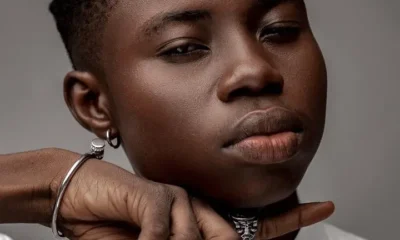
 BIG STORY4 days ago
BIG STORY4 days ago
 BIG STORY13 hours ago
BIG STORY13 hours ago
 BIG STORY5 days ago
BIG STORY5 days ago
 BIG STORY3 days ago
BIG STORY3 days ago






